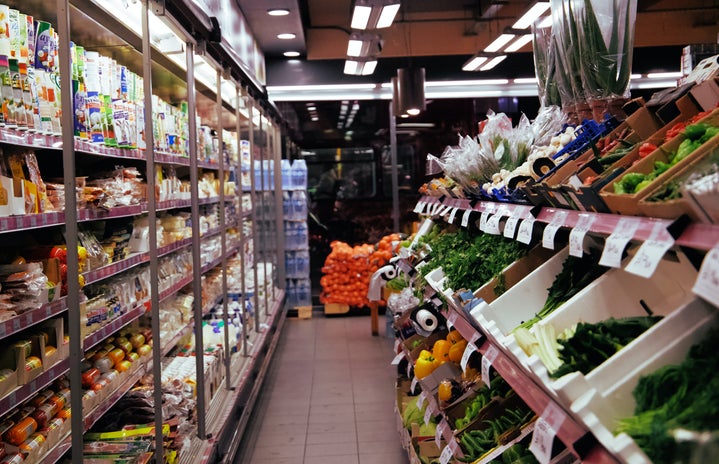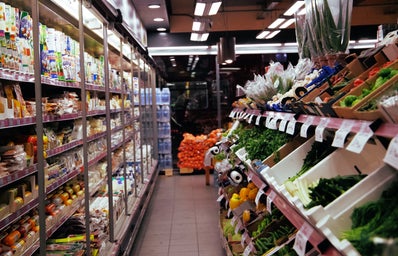Grocery shopping is expensive for a college student. It especially doesn’t help that now the UDistrict Target has closed.
We will miss you, O’ UDistrict Target, RIP.
But we must move on. Loss may be difficult, but not with resources like Too Good To Go at your disposal. Too Good To Go is an app with the initiative to cut down on food waste within restaurants, cafes, bakeries, grocery stores, and more. For only $5.99–sometimes less–you can pick up a bag with a random assortment of goods ranging from loaves of bread and muffins to fresh produce or even rolls of sushi. From a recent Too Good To Go purchase, I scored a $5.99 bag from a local Seattle grocery store that would have equated to around $30. Perhaps the cheapest bag of groceries ever purchased in Seattle’s history.

However, Too Good To Go is about so much more than just a cheap bag of groceries. As previously mentioned, the business model of the app is to cut down on food waste. I have been aware of my levels of food waste ever since watching John Oliver’s episode on food waste in 2015. While the data has changed over time, I remain haunted by Oliver’s statement that 40% of all food produced in the United States is thrown away, which roughly equates to 165 billion dollars being wasted. For the visual learners out there, that can fill more than 700 football stadiums!
I know that when I am buying food, I always look at the “Best By” date. In my mind, the last possible day that I can eat my spinach, yogurt, berries, or whatever, is that date. Is that even the case, though? In many circumstances, that date is just an arbitrary number or a sign of confusion among producers and distributors. It can also be a big fat lie!
Rates of food waste have grown more than 50% since 1974, and that percentage only continues to grow each year. Of course, in no way is this issue sitting solely on the shoulders of consumers. For example, stores big and small are likely to overstock produce to entice a shopper, knowing that a majority of it will be thrown away. When looking for the best, say, apple to sell, there are certain guidelines that producers follow to distribute the best-looking options, even though the product does not change. That creates waste before the goods have even left the fields or factory. It may seem like there is nothing to do about this much larger issue at hand, but choosing to spend less than a traditional bag of groceries on a plethora of snacks, which actively cuts down on the high-quality items that would otherwise be discarded, is a small step that the average person can take.
Besides, the food tends to be really good!


